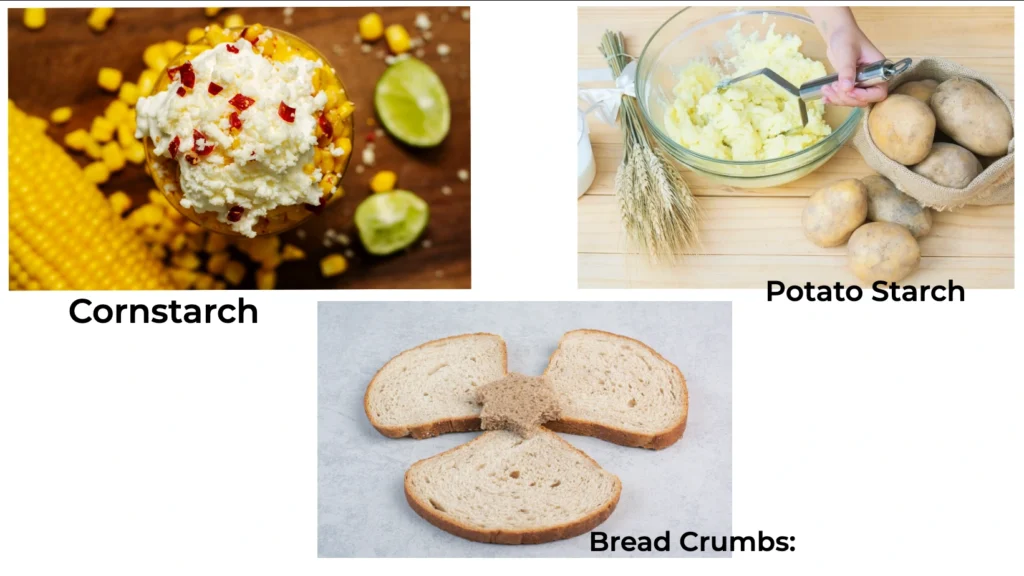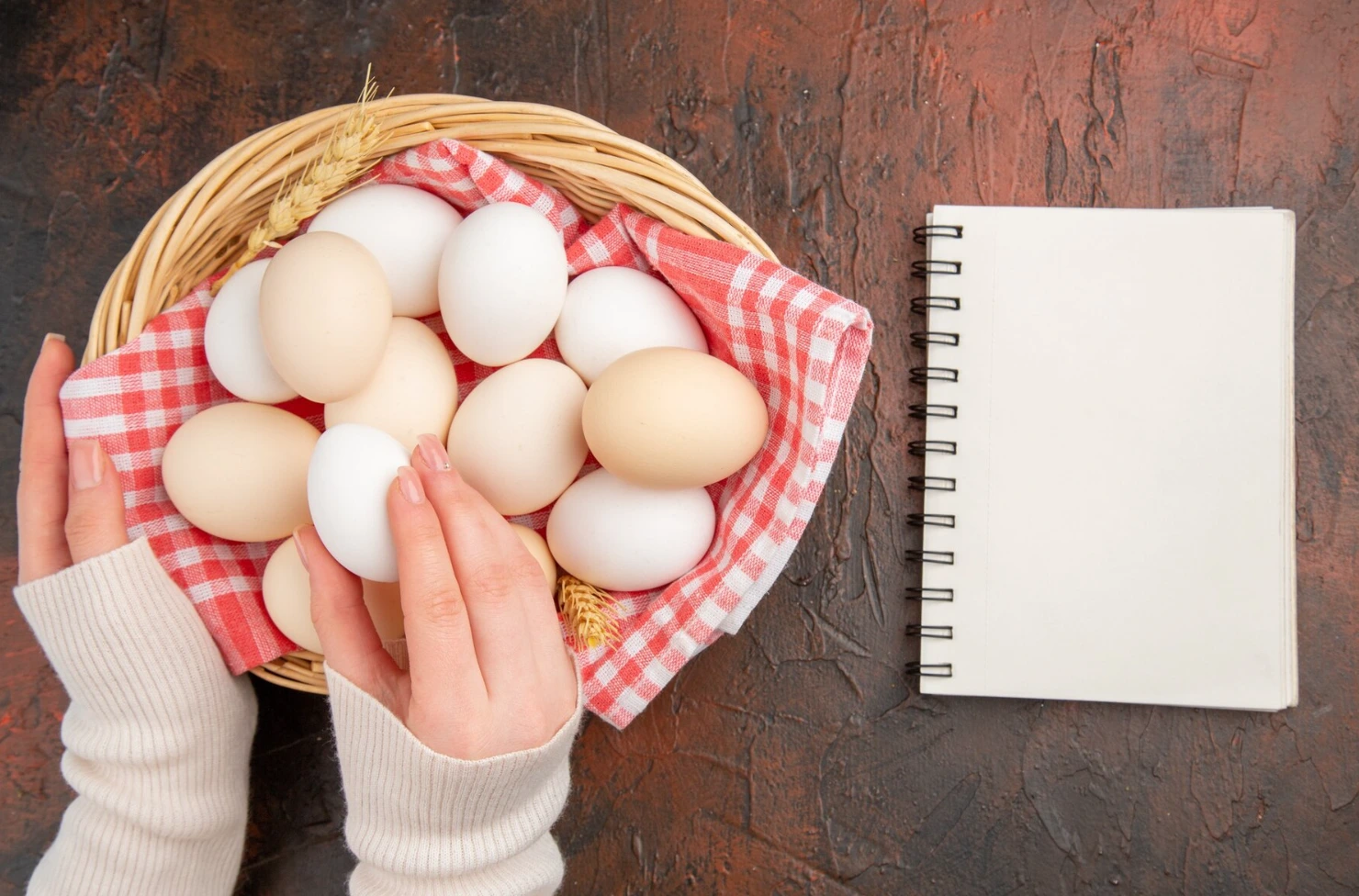Introduction
In the ever-evolving world of culinary arts, the transition towards plant-based diets has prompted a quest for effective vegan egg binders. Whether you’re following a vegan lifestyle, managing allergies, or simply exploring healthier alternatives, understanding these substitutes can revolutionize your cooking experience. This comprehensive guide will provide valuable insights into vegan egg binders, their uses, and how to incorporate them into your favorite recipes.
🥚 Good Egg Substitutes for Binding 🍜
Eggs serve multiple purposes in cooking, with one of the most significant roles being their function as binders. In a myriad of recipes, they help hold ingredients together and achieve the desired texture. When exploring good egg substitutes for binding, it’s essential to focus on plant-based alternatives that can effectively fulfill this role. Here are five top contenders:
- Flaxseed Meal: Flaxseed meal, when mixed with water, forms a gel-like consistency similar to egg whites. To create a binding agent, combine 1 tablespoon of flaxseed meal with 2.5 tablespoons of water. Let it rest for about 15 minutes until it thickens. This substitute is particularly useful in baking and can add a nuttiness to your creations.
- Chia Seeds: Similar to flaxseeds, chia seeds can also create a viscous binder. Combine 1 tablespoon of chia seeds with 2.5 tablespoons of water, and allow it to rest for about 10-15 minutes. Chia seeds work well in various recipes, from muffins to meat substitutes, due to their neutral flavor.
- Aquafaba: Aquafaba, the liquid leftover from cooking beans (especially chickpeas), is a fantastic egg replacement. Three tablespoons of aquafaba can substitute one egg. Its binding properties are ideal for various dishes, including cookies, pancakes, and even vegan mayonnaise.
- Mashed Bananas: Mashed bananas can lend moisture and sweetness while acting as a binding agent. For each egg you substitute, use half a mashed banana. This option is particularly suitable for baked goods, but it may impart a banana flavor to the dish.
- Applesauce: Unsweetened applesauce serves as an effective binding agent and moisture enhancer. Use 1/4 cup of applesauce to replace one egg in recipes, especially in cakes and muffins, where added sweetness may be favorable.
| Egg Substitute | Measurement for 1 Egg | Ideal Uses |
|---|---|---|
| Flaxseed Meal | 1 tablespoon + 2.5 tbsp water | Baking (muffins, cookies) |
| Chia Seeds | 1 tablespoon + 2.5 tbsp water | Baked goods, energy bars |
| Aquafaba | 3 tablespoons | Cookies, pancakes, salads |
| Mashed Bananas | 1/2 banana | Muffins, baked goods |
| Applesauce | 1/4 cup | Cakes, muffins |
By selecting these substitutes, one can create a wide range of vegan dishes while maintaining the necessary binding properties typically provided by eggs.
🌱 Vegan Alternatives to Eggs 🍪
In the pursuit of a vegan lifestyle, the need for effective egg substitutes extends beyond binding. Vegan alternatives to eggs can provide various functionalities, including leavening, moisture, and flavor enhancement. Let’s explore some effective vegan alternatives to eggs:
- Silken Tofu: Blending silken tofu can create a creamy texture that serves multiple purposes in recipes. Use 1/4 cup of blended silken tofu to replace one egg. The neutral flavor makes it ideal for cakes, puddings, and savory dishes like quiches.
- Nut Butters: Nut butters add a rich taste and moisture while acting as excellent binders. For each egg you’re replacing, use 3 tablespoons of nut butter, such as almond or cashew butter. This option is excellent for cookies and brownies, providing a delightful nutty flavor.
- Oats: Ground oats mixed with water can create a binding effect similar to eggs. Combine 1/4 cup of ground oats with 1/4 cup of water to substitute for one egg. This option adds fiber and is suitable for pancakes and energy bars.
- Commercial Egg Replacers: There are various commercial egg replacers available in stores, specifically designed for vegan baking. Brands like Ener-G provide simple instructions for use, typically requiring mixing with water.
- Coconut Yogurt: Unsweetened coconut yogurt can replace eggs in recipes requiring moisture and binding. Use 1/4 cup of yogurt as a substitute for one egg in baked goods.
These alternatives showcase the versatility of plant-based ingredients, enabling the creation of dishes previously thought difficult to replicate without eggs.
🔄 Binders Without Eggs 🍚
Finding effective binders without eggs is crucial for those following a vegan diet. Here are several fantastic options to utilize in various recipes:

- Cornstarch: Cornstarch acts as an emulsifier and binder without the need for eggs. Combine 2 tablespoons of cornstarch with 3 tablespoons of water to create a paste suitable for binding in recipes like vegetable fritters or burgers.
- Potato Starch: Similar to cornstarch, potato starch offers binding properties when mixed with water. Use 2 tablespoons of potato starch mixed with 3 tablespoons of water as a binding agent in various recipes.
- Bread Crumbs: For savory dishes like veggie patties, bread crumbs not only enhance texture but can also function as a binding agent. About 1/4 cup of bread crumbs can replace one egg.
These binders offer unique functionalities and can be mixed and matched according to your specific dish needs.
🍽️ Eggless Binders for Breading 🍞
Breading is an essential technique in many recipes, providing both texture and flavor. However, traditional breading often relies on eggs for adherence; fortunately, there are several eggless options that work efficiently to achieve that crunchy perfection:
- Plant-Based Milk: Unsweetened soy or almond milk can replace eggs in breading. Dip your food into the milk before rolling it in breadcrumbs. This approach creates a cohesive coating that sticks well.
- Vegan Yogurt: Use unsweetened coconut or soy yogurt as a creamy base for your breading. Simply dip your food in yogurt before applying breadcrumbs for a rich texture.
- Mustard or Hot Sauce: For an extra kick in flavor while maintaining adhesion, try using mustard or hot sauce. Spread a thin layer on your food before breading for an exciting twist.
- Ground Flaxseed or Chia Seed Mixture: Mix ground flaxseed or chia seeds with water to create a slurry that can function similarly to egg in breading.
- Vegetable Purees: Pureed vegetables like pumpkin or sweet potatoes can also serve as a binding agent for breading. Their natural starches and moisture help adhere the breadcrumbs.
| Eggless Binder | Usage | Preferred Dishes |
|---|---|---|
| Plant-Based Milk | Dip food before coating with breadcrumbs | Veggie nuggets, onion rings |
| Vegan Yogurt | Use as a creamy base before applying breadcrumbs | Cauliflower bites, zucchini fritters |
| Mustard/Hot Sauce | Spread before breading for flavor enhancement | Chickpea patties, tofu strips |
| Ground Flax/Chia Mix | Create a slurry for coating | Fried zucchini, veggie croquettes |
| Vegetable Purees | Apply as a binding agent before breading | Baked falafel, vegetable patties |
These eggless binders for breading not only help achieve that desired crispiness but also enhance the flavor profile of your dishes.
🥚 Egg Substitute for Emulsification 🌊
Emulsification, a critical technique in cooking, involves blending two immiscible liquids, such as oil and water. In traditional recipes, eggs serve as an emulsifying agent, but many plant-based ingredients can perform this function effectively. Here are egg substitutes for emulsification:
- Aquafaba: As mentioned, aquafaba plays a double role as a binder and emulsifier. When whipped, it can mimic the consistency of egg whites, making it ideal for salad dressings, mayonnaise, and creamy sauces.
- Mustard: While imparting flavor, mustard also acts as an emulsifier. Combine mustard with oil and vinegar for a creamy vinaigrette that remains stable.
- Soy Lecithin: Derived from soybeans, soy lecithin is a powerful emulsifier that can stabilize mixtures effectively. It can be used in various applications, including dressings, spreads, and plant-based mayo.
- Vegan Cream Cheese: For creamy applications, such as dressings, vegan cream cheese can serve as a binding and emulsifying agent. Blend it with herbs and spices for a rich and stable dressing.
- Cashew Cream: Blending soaked cashews with water creates a smooth, creamy texture that can emulsify dressings, sauces, and dips.
Using these substitutes can help you maintain the creamy texture and stability of your recipes while remaining plant-based.
🚫 Emulsifying Without Eggs 🌽
Emulsifying without eggs becomes a need for those seeking eggless solutions in their favorite dishes. Effective alternatives to achieve emulsification include:
- Nut Butters: Rich in fats, nut butters can effectively hold together oil and water in recipes like salad dressings and sauces.
- Potato Starch Mixture: Combine water with potato starch to create a paste that can serve as both a binding and emulsifying agent in sauces.
- Yogurt: Coconut or soy yogurt can emulsify when blended with oil, producing creamy dressings and sauces.
- Coconut Milk: The high fat content in coconut milk allows for emulsification in curry sauces and soups, replacing the need for eggs.
By utilizing these alternatives, you can create a wide array of emulsified dishes while adhering to plant-based principles.
🌾 Can Psyllium Husk Replace Eggs? 🌱
Psyllium husk, derived from the seeds of the Plantago ovata plant, is a remarkable plant-based ingredient that can indeed substitute for eggs. When mixed with water, it forms a gel-like consistency that serves both as a binding and thickening agent. To substitute one egg, combine 1 tablespoon of psyllium husk with 3 tablespoons of water and allow it to rest for about 10-15 minutes until it thickens.
This versatile binder is particularly useful in gluten-free baking, as it helps provide structure and elasticity to baked goods. Psyllium husk is often praised for its high fiber content, making it a healthful choice to incorporate into recipes.
Using psyllium husk allows for creative freedom in your baking endeavors while maintaining texture and moisture without eggs.
🥛 Using Milk as an Egg Binder 🥥
In certain recipes, especially in baking, milk can serve as an excellent binder. Both dairy and plant-based milk can contribute moisture while helping to hold ingredients together. In a creamy batter or dough, milk can enhance the overall structure without the need for eggs.
In recipes where only a small quantity of liquid binds the ingredients together—such as pancakes or waffles—1/4 cup of plant-based milk can effectively replace one egg.
Additionally, using milk as a binder complements other flavorings and helps achieve a tender texture in baked goods, such as muffins and cakes, while ensuring you maintain the essence of your culinary creations.
🎂 Binding a Cake Without Eggs 🍰
Creating a cake without eggs may seem daunting, but several alternatives can lead to a successfully bound and delicious dessert. When preparing a cake, consider these binding agents:
- Flaxseed or Chia Egg: Create your flaxseed or chia egg by mixing 1 tablespoon of ground seeds with 2.5 tablespoons of water. This mixture, once thickened, can replace eggs in your cake batter.
- Applesauce: A popular baking choice, 1/4 cup of unsweetened applesauce effectively holds ingredients together while adding moisture to the cake.
- Silken Tofu: Blending 1/4 cup of silken tofu can offer the necessary binding texture and a creaminess that enhances your cake’s flavor.
- Vegan Yogurt: Use 1/4 cup of plant-based yogurt to create moist, flavorful cakes that hold together beautifully.
- Store-Bought Egg Replacers: Utilize commercial egg replacers in accordance with package instructions, ensuring successful cakes without traditional eggs.
With these binding options, anyone can achieve a delightful and satisfying cake without the use of eggs, allowing for a world of creativity in vegan baking.
| Baking Alternative | Measurement for 1 Egg | Ideal Uses |
|---|---|---|
| Flaxseed Egg | 1 tbsp + 2.5 tbsp water | Cakes, muffins |
| Chia Seed Egg | 1 tbsp + 2.5 tbsp water | Pancakes, quick breads |
| Applesauce | 1/4 cup | Cakes, muffins |
| Silken Tofu | 1/4 cup | Creamy cakes, brownies |
| Vegan Yogurt | 1/4 cup | Moist cakes, pancakes |
These options not only help to replace eggs but also enhance flavors and textures in vegan baking.
🍔 Binding Agents for Burgers Without Eggs 🍔
Creating delicious vegan burgers that stay together can pose a challenge, particularly without eggs. However, there are several binding agents that can hold your patties intact while ensuring mouthwatering flavors:
- Cooked Quinoa: Not only does quinoa provide protein, but its sticky texture can help bind ingredients together in veggie burgers.
- Mashes Beans or Lentils: When mashed, various beans (such as black beans or chickpeas) act as excellent binders, creating a cohesive patty.
- Ground Oats: Whole or ground oats can absorb moisture and help bind together your burger ingredients, creating a heartier texture.
- Breadcrumbs: Using seasoned breadcrumbs can not only help with binding but also enhance flavor in your burger mixture.
- Nut Butters or Seed Butters: Nut or seed butters add richness while providing binding properties. Ensure you balance the flavor to complement your burger.
| Binding Agent | Measurement for 1 Burger | Ideal Uses |
|---|---|---|
| Cooked Quinoa | 1/4 cup | Veggie burgers |
| Mashed Beans/Lentils | 1/2 cup | Lentil burgers |
| Ground Oats | 1/4 cup | Patties, veggie burgers |
| Breadcrumbs | 1/4 cup | Burgers |
| Nut Butter/Seed Butter | 2 tbsp | Savory patties |
These options demonstrate the versatility of binding agents that ensure your burgers hold together without relying on eggs.
🍖 Alternatives to Eggs in Meatloaf Binding 🌱
When it comes to creating a hearty meatloaf while avoiding eggs, several versatile ingredients can effectively bind your mixture. Here are some alternatives that contribute to a tasty and cohesive vegan meatloaf:
- Ground Flaxseed or Chia Seed: As mentioned earlier, combining ground seeds with water creates a binder that can work beautifully in meatloaf mixtures.
- Mashed Potatoes: Creamy mashed potatoes can enhance texture while helping to bind the ingredients together in a meatloaf.
- Grated Vegetables: Incorporating grated zucchini or carrots adds moisture while providing a natural binding effect. The added vegetables also enhance flavor and nutrition.
- Cooked Rice or Quinoa: These ingredients not only add texture but can also absorb moisture, lessening the need for eggs in the mixture.
- Vegetable Puree: Incorporate pureed vegetables like lentils or beans that can help create a moist and cohesive meatloaf.
Using these alternatives allows one to craft flavorful and satisfying vegan meatloaves, showcasing the versatility of plant-based ingredients.
❓ FAQs About Vegan Egg Binders
Q1: What are vegan egg binders?
A1: Vegan egg binders are plant-based alternatives that can replicate the binding properties of eggs in recipes. Common choices include flaxseed meal, chia seeds, aquafaba, and mashed fruits.
Q2: How do I use aquafaba in my recipes?
A2: Aquafaba can be substituted for eggs; three tablespoons can replace one egg. It can also be whipped to create a stable foam, ideal for meringues or mousses.
Q3: Can I use any type of nut butter in substitution?
A3: Yes, various nut butters, such as almond, cashew, or peanut butter, can act as excellent binders, but be mindful of how their flavors may affect the final dish.
Q4: Is psyllium husk suitable for gluten-free baking?
A4: Absolutely! Psyllium husk is an excellent binding agent in gluten-free recipes, helping to provide structure and moisture.
Q5: Are there commercial egg replacers that I can use?
A5: Yes! Numerous brands offer commercial egg replacers, which provide specific instructions for substitution in various recipes.
🌟 Conclusion: Exploring Vegan Egg Binders 🌱
In the realm of plant-based cooking, understanding vegan egg binders is essential. With a plethora of options ranging from flaxseed meal to aquafaba, these substitutes empower you to create delicious, cohesive, and satisfying dishes without the use of eggs. Embracing these alternatives not only supports dietary preferences but also fosters creativity in the kitchen.
By utilizing these vegan egg binders, you’ll unlock vast culinary possibilities, whether you’re baking beloved desserts, crafting flavorful veggie burgers, or whipping up a classic meatloaf. The journey towards plant-based cooking encourages experimentation and innovation, allowing for healthier and diverse meals.

